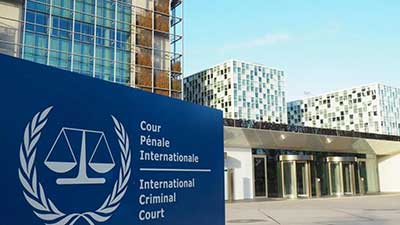Date: 20/03/2023
Relevance: GS-2: Important International Institutions, agencies and fora - their Structure, Mandate; International Criminal Court; Russia-Ukraine War.
Key Phrases: Russia-Ukraine War, International Criminal Court, International Court of Justice, North Atlantic Treaty Organization, United Nations Security Council (UNSC), Multilateral Reforms.
Context:
- Recently, The International Criminal Court issued an arrest warrant for Russian President Vladimir Putin on the war crime accusation of unlawfully deporting Ukrainian children.
Key Highlights:
- Moscow dismissed the orders as “void” and War-battered Ukraine welcomed the ICC announcement.
- Neither Russia nor Ukraine is member of the ICC, but Kyiv has accepted the court’s jurisdiction.
- Since Russia is not a party to the ICC so it was unclear if or
how Mr. Putin could ever end up in the dock.
- Russia denies allegations of war crimes by its troops.
- Since its launch in 2002, the court has issued arrest warrants for
three sitting world leaders: Sudan's Omar al-Bashir, Libya's Moammar
Gadhafi and now Putin.
- None have stood trial. (Gadhafi was killed and al-Bashir remains at large.)
What can the ICC do?
- The ICC has jurisdiction over four types of crimes: genocide, war crimes, crimes against humanity and crimes of aggression.
- However, with no armed body to enforce its warrants, the ICC has minimal power to arrest people and instead must rely on the security forces of member states.
What is the court's prosecution record?
- With more than 900 staff members and an annual budget of nearly $250 million, 31 cases have gone before the International Criminal Court.
- Its judges have issued 38 arrest warrants, according to the ICC's
website.
- Twenty-one of those have led to a suspect being arrested by a member state and held in the court's detention centre.
- The court has issued 10 convictions and four acquittals.
International Court of Justice |
International Criminal Court |
|
|
What can be the implications of the Warrants?
- Human rights groups hailed the warrant as an important step toward ending impunity for Russian war crimes in Ukraine.
- While an arrest might be unlikely, the warrant will make diplomatic and business endeavors more difficult for Putin and his allies.
- The likelihood of a trial while Putin remains in power appears slim since the court cannot try defendants in absentia, and Russia has said it will not surrender its own officials.
- Putin’s isolation in the West deepens, and his movements overseas could be limited.
- If he travels to a state that is a party to the ICC, that country must arrest him according to its obligations under international law.
- It is essential for the international community to dig in for the long term and to send a clear message that they will not sweep these crimes under the carpet and that the perpetrators will be pursued and will one day be brought to justice.
Conclusion:
- During the first 20 years of operations, the ICC has tried and resolved cases of significance for international justice, shedding light on the crimes committed by the use of child soldiers, the destruction of cultural heritage, sexual violence, or attacks on innocent civilians.
Source: The Hindu
Mains Question:
Q. What are the major differences between the International Court of Justice and the International Criminal Court? (150 Words).







